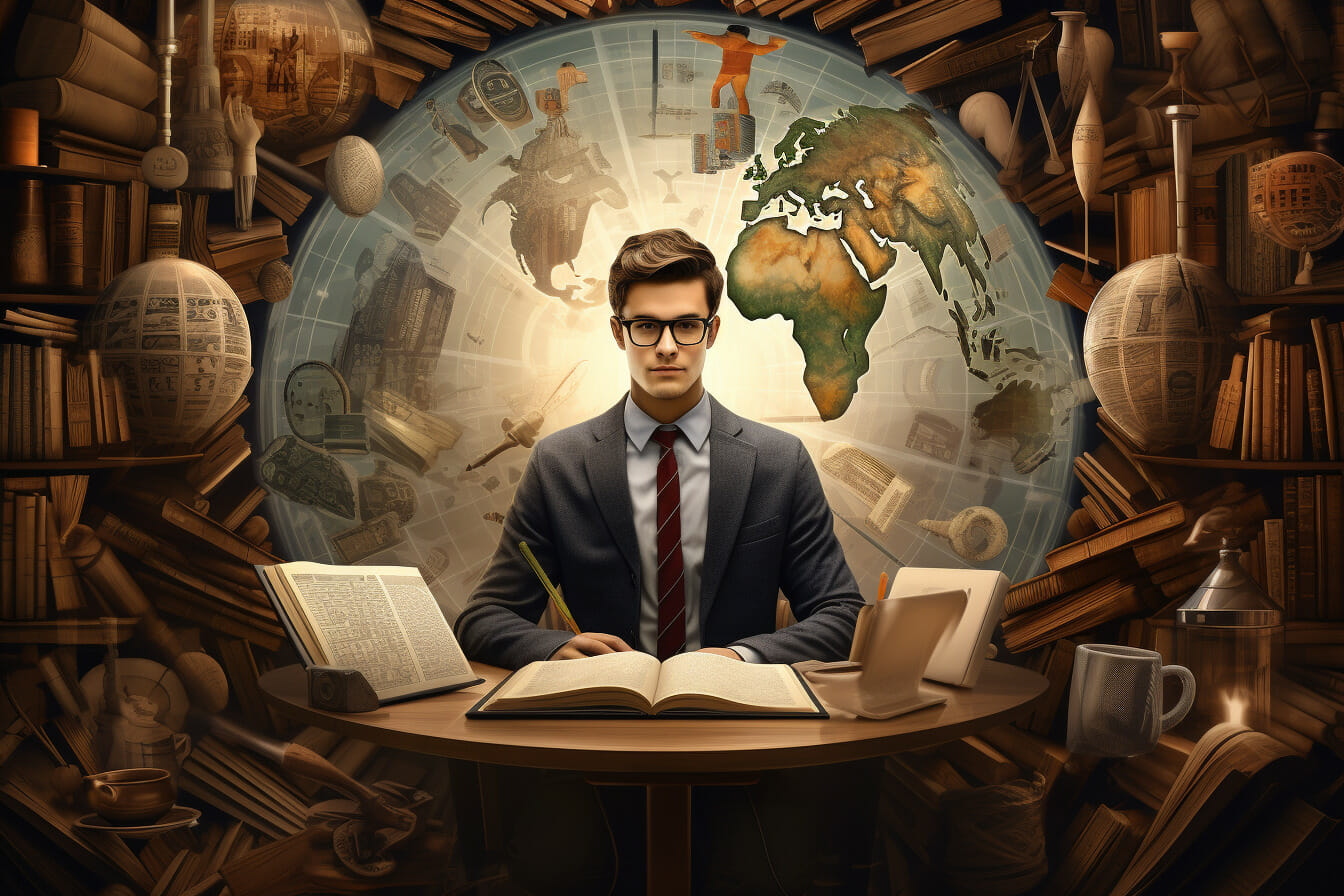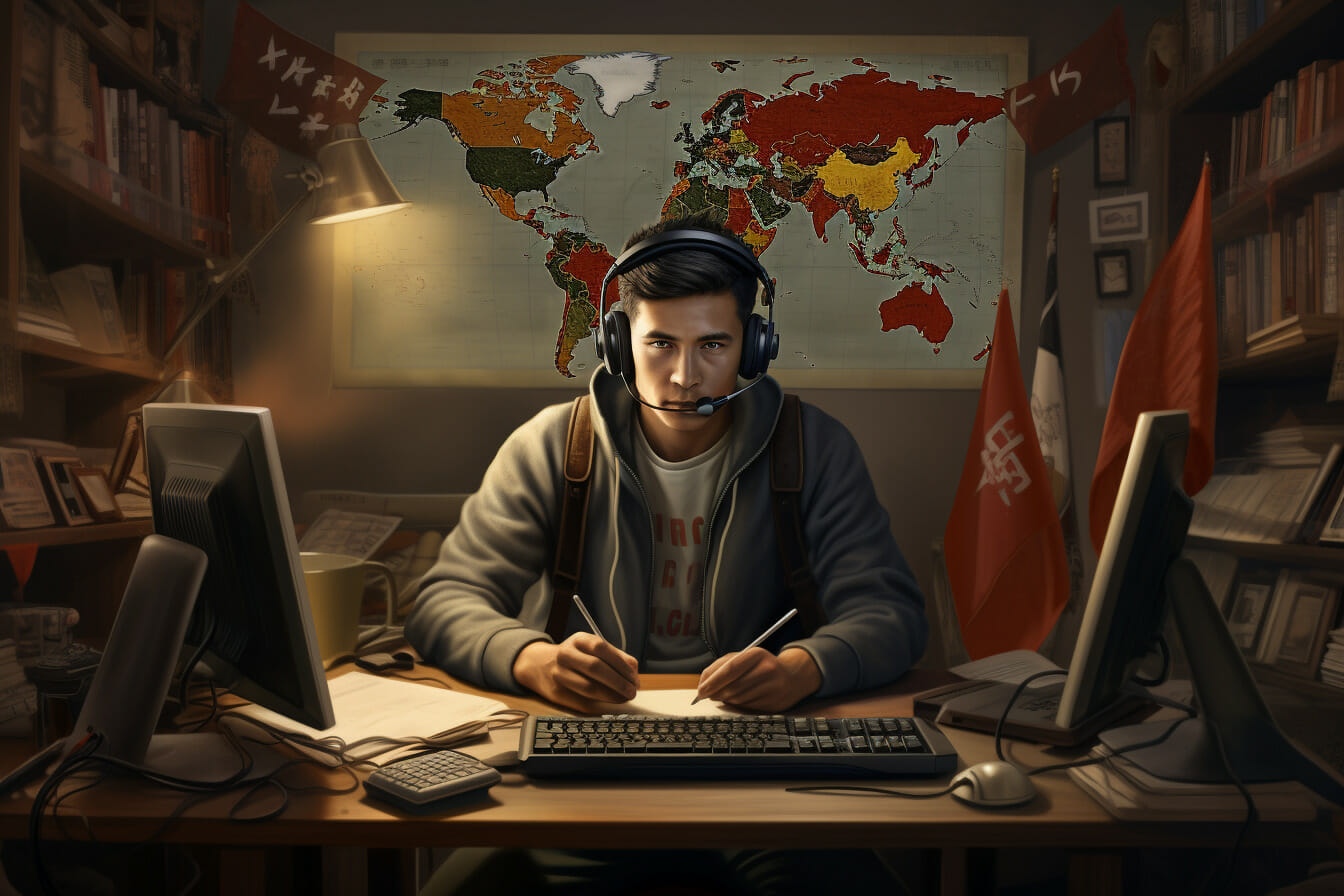Unveiling the Role of a Translator
Have you ever wondered about the magic behind communicating across multiple languages? That’s where translators come in. They’re the unsung heroes bridging language gaps and enabling global communication.
In this article, you’ll discover what a translator does, the skills they need, and why cultural context matters. You’ll also explore various specialization areas and the actual process of translation.
Let’s dive into the intriguing world of translation!
Table of Contents
The Essential Role of Language Conversion

It’s crucial to understand that the essential role of a translator is to convert one language to another, thereby enabling communication between different language speakers. Picture yourself in a foreign country, unable to understand the local language. You’re lost, confused, and anxious.
That’s when a translator’s role becomes vital. They bridge the gap, turning unfamiliar words into understandable messages.
Imagine you’ve written a book and want to share your story worldwide. Again, a translator can transform your words, opening your work to an international audience. So, translators are not just language converters; they’re connectors, bridging cultures and fostering understanding.
They’re also gatekeepers, ensuring nothing gets lost in translation.
So, remember the translator’s crucial role the next time you read a translated work or converse with someone in a different language.
Skills and Training Required
To excel in this field, you must have excellent language proficiency, cultural understanding, and specialized training in your chosen subject area. You’ll need the ability to accurately and swiftly switch between languages, grasping the nuances of each.
Cultural understanding isn’t just about knowing the local customs and traditions; it’s about understanding the mindset of the people who speak the language.
In addition to these, you’ll need to complete a translator training program. These programs equip you with skills in grammar, syntax, vocabulary, and idiomatic expressions. They also provide training in specific fields like legal, medical, or technical translation.
It’s a challenging profession, but you can become a successful translator with the right skills and training. Remember, continuous learning and practice are essential in this field.
Understanding the Importance of Cultural Context

Understanding cultural context isn’t just about memorizing facts and figures. You’ve got to truly appreciate and empathize with the mindset and lifestyle of the people whose language you’re working with. You see, languages are more than just words.
They’re tied to a group of people’s culture, history, and experiences.
As a translator, you have to get a handle on these aspects to convey the intended message accurately. Think about jokes, idioms, or sayings. Without cultural context, they can lose their meaning or even be misunderstood.
Deep cultural understanding is crucial because you translate words, emotions, humor, and cultural nuances.
So, embrace the culture behind the language you’re translating. It does make a difference.
Specialization Areas in Translation
As you delve deeper into the world of translation, you’ll find several areas of specialization you can pursue.
Legal translation, for instance, requires an understanding of both the source and target language’s legal systems.
On the other hand, medical translation demands knowledge of medical terminologies and practices.
Similarly, technical translation focuses on texts like user manuals or technical instructions, requiring a specific skill set.
Literary translation, arguably the trickiest, involves translating words and the context, humor, and cultural nuances within a piece of literature.
There’s also localization, which adapts a product or content to a specific region or market. This could involve anything from website content to video games.
Your choice of specialization depends on your interests, skills, and career goals.
The Process of Translation

You’ll find that the translation process involves more than simply swapping words from one language to another. It’s a complex task requiring an in-depth understanding of the source and target languages.
To begin, you have to thoroughly analyze the source text, understanding the words and the context and culture behind them. Next, you’ll translate the content, ensuring you maintain the original meaning while adapting it to the target language’s cultural norms and linguistic rules.
But you’re not done yet. You’ll then need to edit and proofread your translation, checking for errors or inconsistencies. Finally, you’ll review the translated text, making sure it’s stylistically appropriate and conveys the original message accurately.
And that, in essence, is the intricate process of translation.
Frequently Asked Questions
What is a translator?
A translator is a person who translates text from one language into another.
What are the different types of translators?
There are various types of translators, including literary translators, technical translators, and legal translators.
What does an interpreter do?
An interpreter is a type of translator who translates spoken language instead of written text.
What is the role of a dictionary in translation?
A dictionary is a valuable tool for translators as it helps them find the meanings and correct translations of words in different languages.
How does a translator work?
Translators understand the original text written in the source language and then render it accurately into the target language.
What is the American Translators Association (ATA)?
The American Translators Association (ATA) is a professional organization representing translators and interpreters in the United States.
What languages do translators often specialize in?
Depending on their proficiency and expertise, translators may specialize in one or more languages.
What is the difference between a translator and an interpreter?
While translators work with written text, interpreters deal with spoken language.
What is the role of a compiler in programming language translation?
A compiler is a software that translates the source code written in a programming language into machine-readable code.
What is the role of professional translators?
Professional translators provide high-quality translations for various industries and cater to the specific needs of their target audience.
Conclusion
So, you’ve learned about translators. They play a crucial role in our global society, requiring specific skills and cultural understanding. They specialize in various areas and follow a meticulous process to ensure accurate translations.
So next time you come across a foreign text, remember there’s a skilled professional behind its translation, ensuring you get the right message. Understanding the significance of their work helps you appreciate the effort put into every translated piece.













